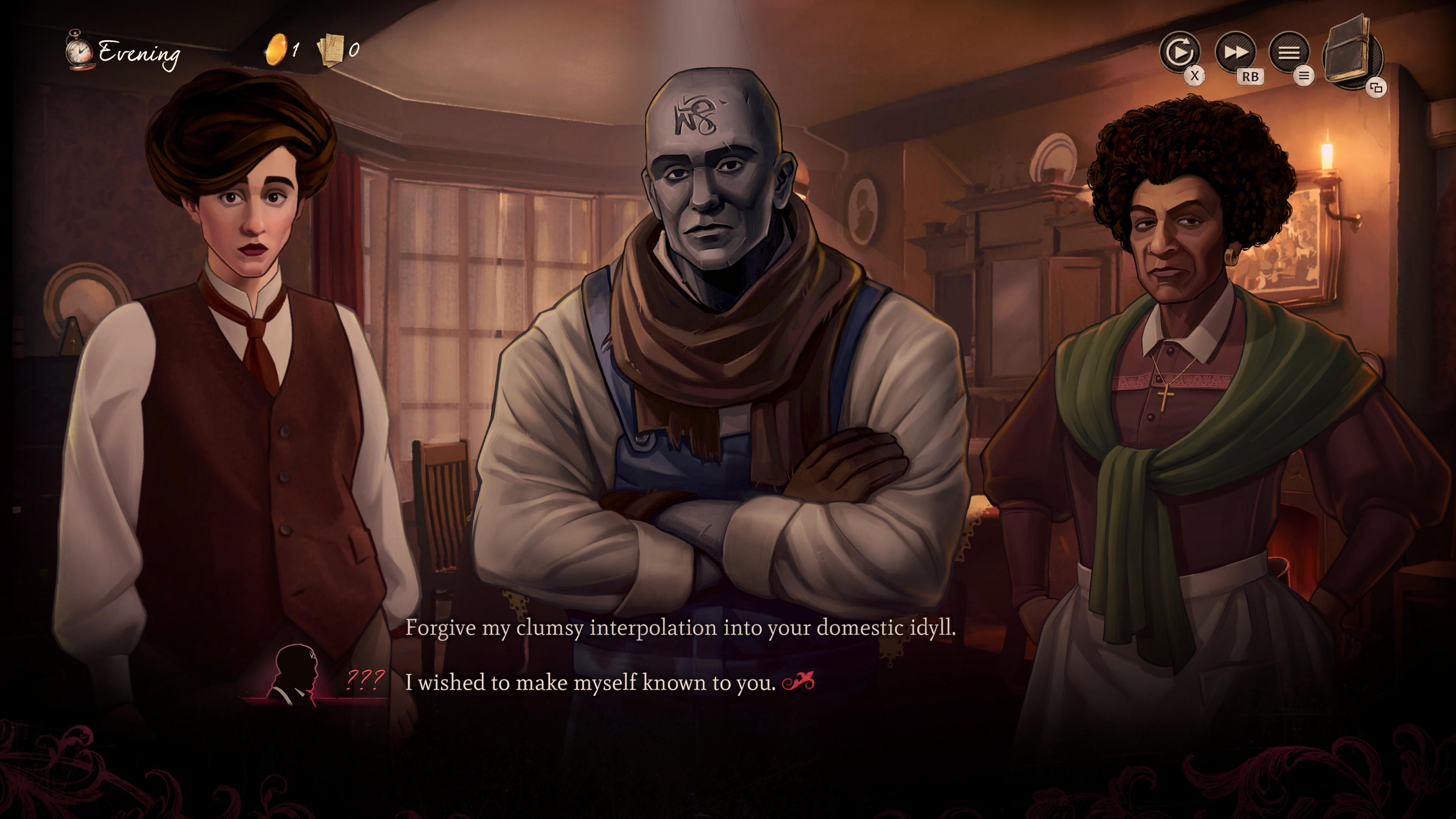Our Verdict
Mask of the Rose's writing and characters shine, but the game underneath them never fully gels together.
PC Gamer's got your back
What is it? A visual novel/dating sim set in Failbetter's Fallen London universe.
Release date June 8, 2023
Expect to pay $20/£17
Developer Failbetter Games
Publisher Failbetter Games
Reviewed on Ryzen 7 3700X, RTX 4080, 16GB RAM
Steam Deck Verified
Link Official site
It's hard for me to believe that it's taken Failbetter this long to try its hand at a visual novel. The studio has always had the most engrossing, amusing, and evocative writing in the business, but it's got an uncanny knack for hiding that writing behind mechanics that eventually wear on my nerves. Between browser games and roguelikes, the studio's wit keeps ending up blunted by repetitive gameplay loops. Only Sunless Skies, so far, has managed to strike a good balance.
So it must feel like Failbetter has finally found a perfect home with the visual novel genre, right? Well, kind of. London is as fascinating as ever, but while many of Mask of the Rose's mechanics are interesting ideas, they too often feel a touch underbaked, leaving me groping in the dark without a full understanding of the decisions I'm making.
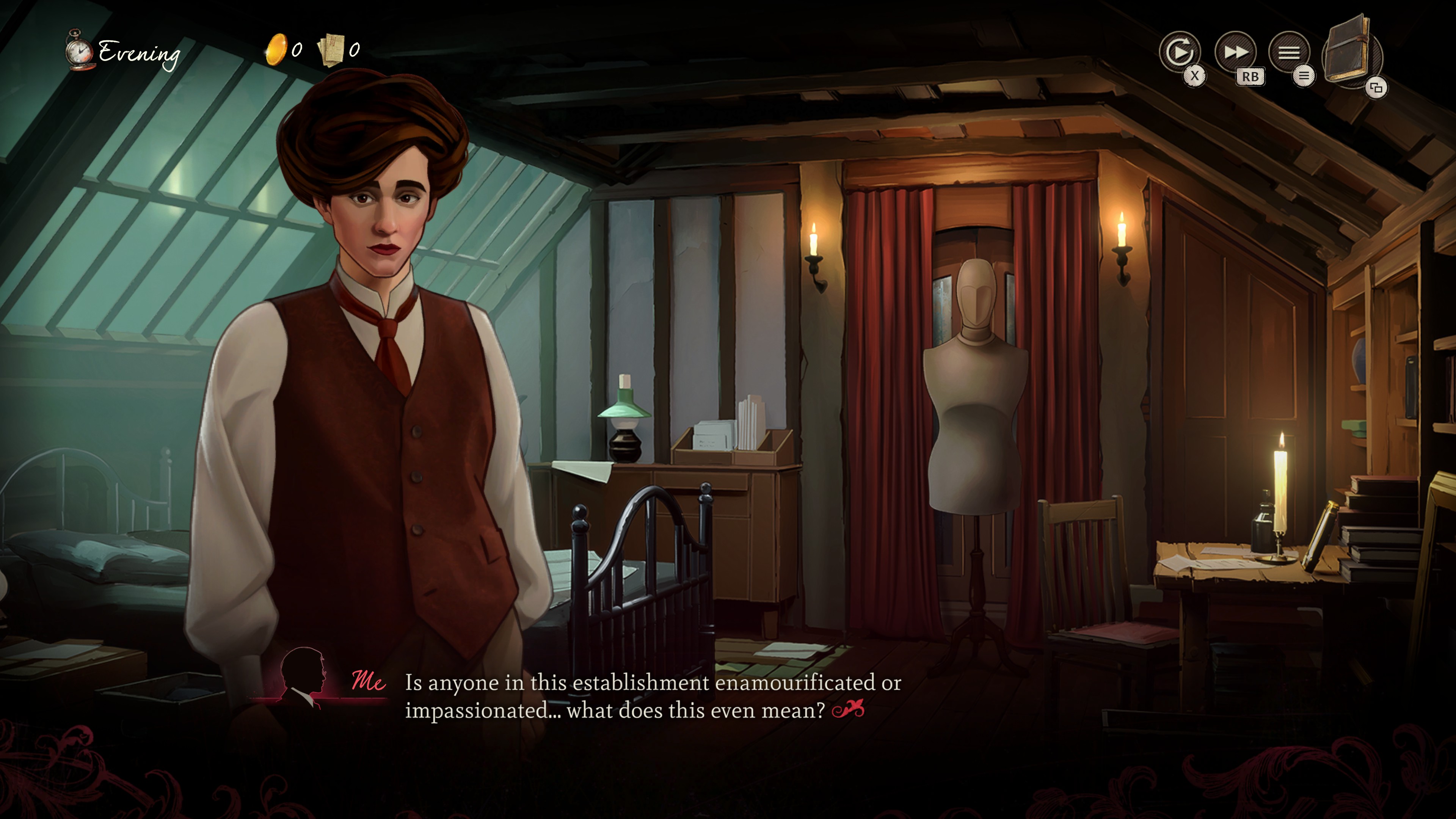
London falling
Up to now, every game set in fallen London (including, ah, Fallen London) has taken place decades after the actual fall happened, but Mask of the Rose sits squarely in 1862, kicking off around 260 days after bats blackened the sky and absconded with the capital of the British Empire. This is where, and when, you find yourself.
Precisely who 'you' are in Mask of the Rose is open to elastic definition. Your background and gender are all pleasantly fluid. Plus, it might call itself a dating sim, but you can make it clear from the off just what kinds of relationships you're open to. You can keep everything strictly platonic, or physical but not romantic, or swing the doors wide open to anything that comes your way. You can, if you so choose, only involve yourself in romance by playing matchmaker, or breaker, with the rest of the game's cast.
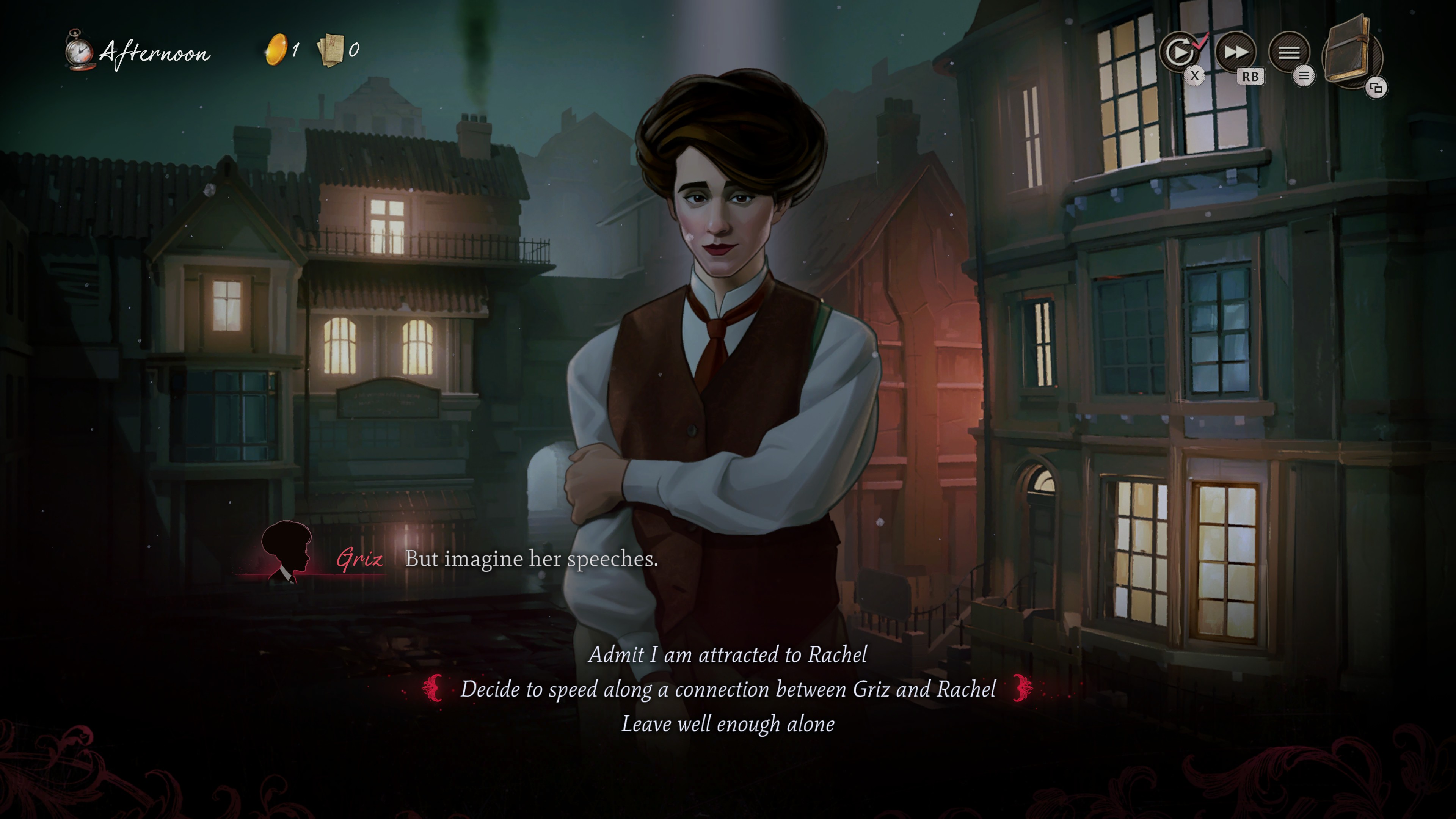
It's admirably open-ended, and should hopefully give anyone room to play without feeling uncomfortable. Even if you mark yourself as down for whatever on Victorian Tinder, the game will regularly check in about what kind of relationship you're pursuing, if any, with each of the game's individual characters, including the giant bat and the squid-man.
Your relationships, whether platonic, romantic, indifferent or hostile, with the game's cast are the heart of Mask of the Rose, so it's a good job they're rewarding to pursue. So soon after London's fall, all sorts of histories and identities are bumping up against each other in the city's shifting streets. Men and women, highborn and lowborn, Jewish, Hindu and Christian all rattle around trying to find stations for themselves in a new world, even as otherworldly newcomers start making appearances.
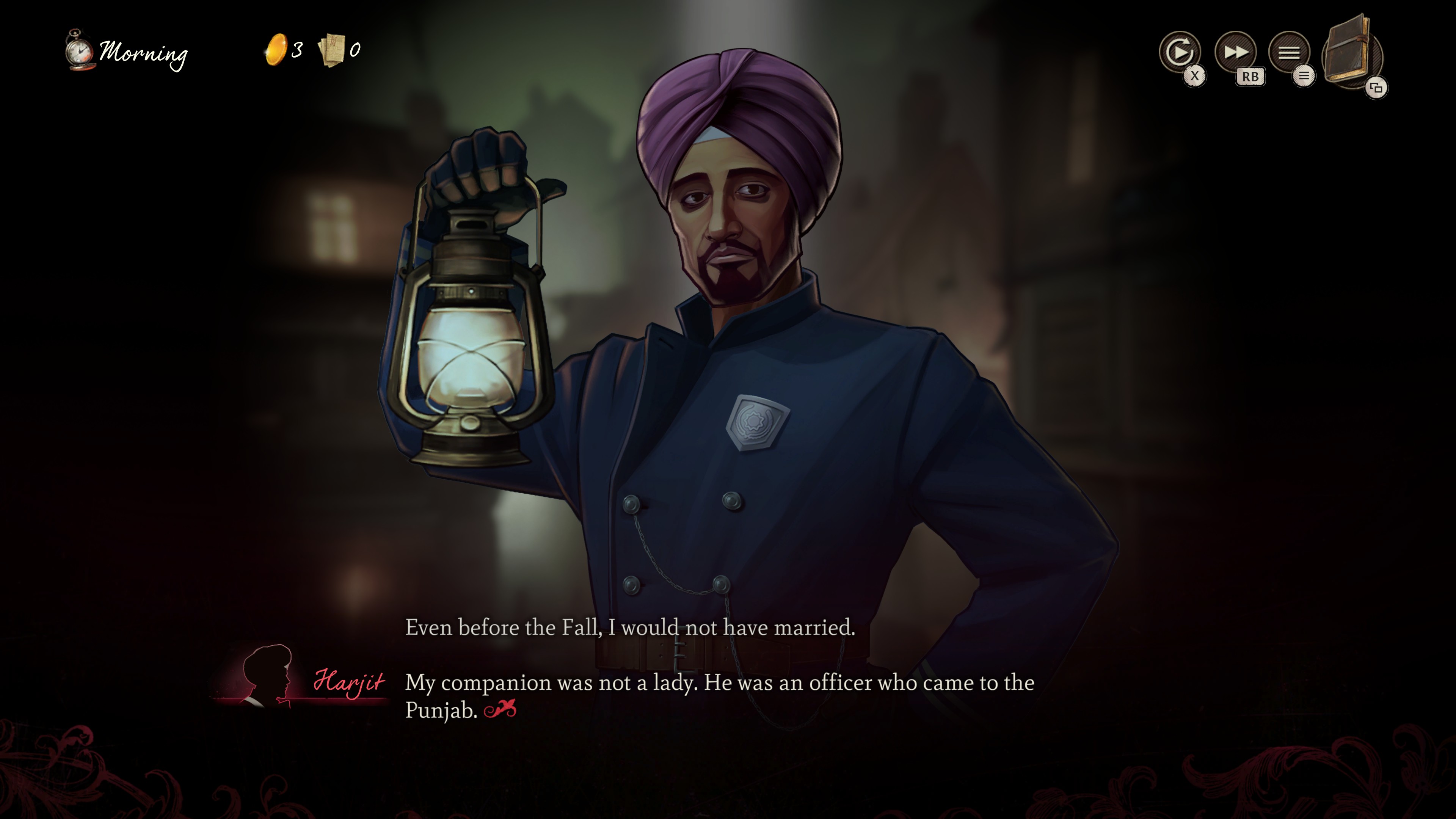
It's richly textured and a pleasure to delve into, but your ability to do so is constrained by just how limited your time is in Mask of the Rose's London. You're constantly making choices—and every choice takes time—as the game progresses, even the clothes you wear to an encounter can alter how people react to you and the dialogue options you have during it, and Failbetter clearly wants you to go through them again and again to see the impacts your choices can have.
You can get through a full run of the game in around three or four hours, but it means you'll inevitably leave plot-threads dangling and lots of relationships at a halfway point when you hit credits. Even going through with a new character background and some different choices, I ended up feeling like I was repeating certain sections of the game to get back to where I was previously.
Even the clothes you wear to an encounter can alter how people react to you and the dialogue options you have
Take, for example, what you can probably describe as Mask of the Rose's main plot. Much like real life, the game is part dating sim, part murder mystery, and a significant part of the game's midsection is taken up by trying to prove your friend and flatmate has been falsely accused of murder (don't worry, the victim got better).
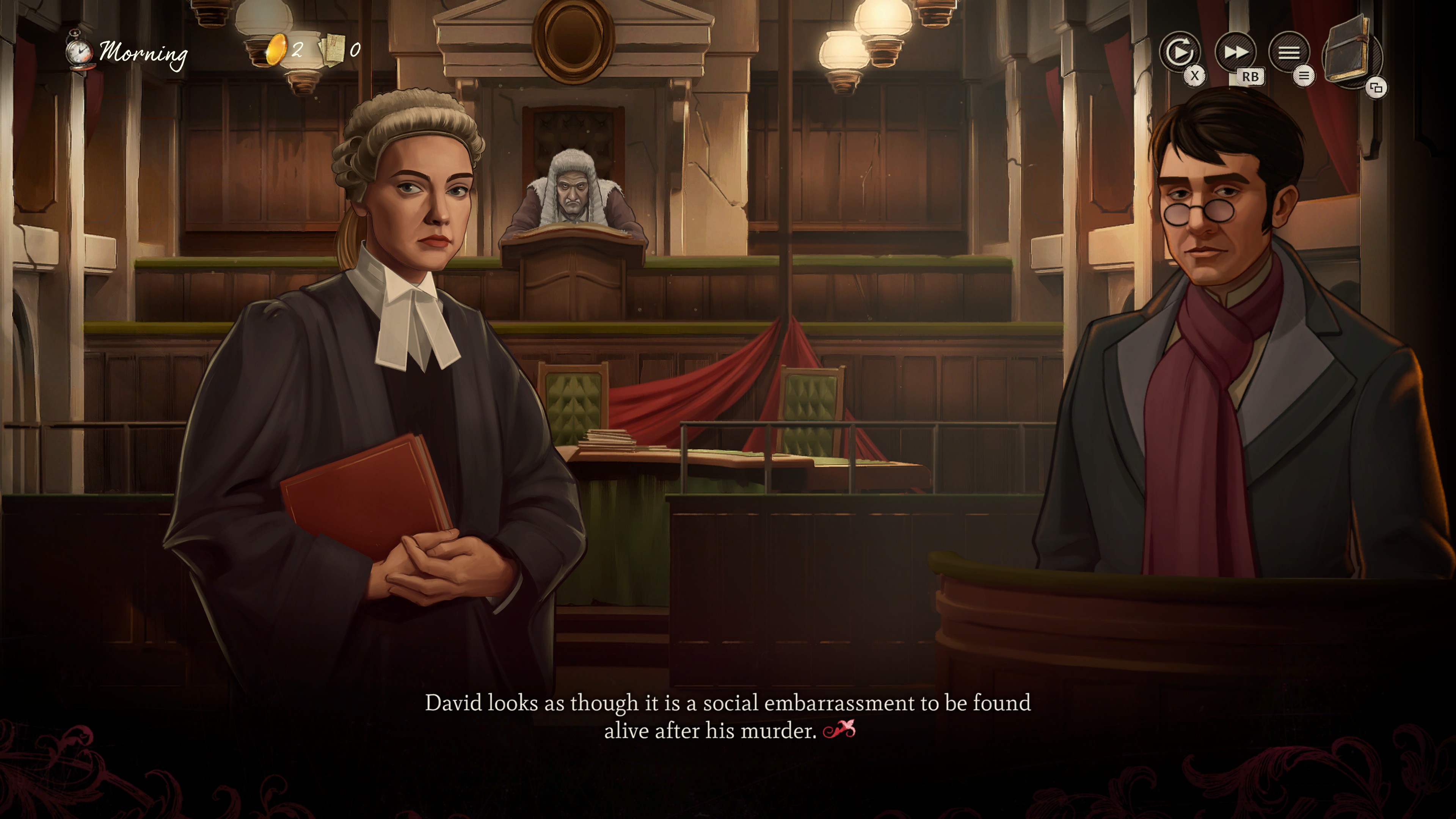
My first time through, unaware of how little time I had, I accidentally left my friend to hang because I got distracted pursuing various other plotlines: Fomenting revolution, taking London's census, trying to woo someone attractive even though they're definitely a Tory. The second? I tried to balance my responsibilities and left them all half-finished. The third time through, I focused and finally managed to assemble one of many possible cases for why my boy was innocent.
The third time through was the most satisfying, narratively, even if I'm an execrable Phoenix Wright, but it felt like I had to laser-in on the murder case at the expense of everything else the game had to offer. I could have ignored it, like I accidentally did the first time, but it feels a tad strange to leave my amiable Scottish chum to the gibbet's whims because I'm too busy trying to help a different friend with their writer's block.
Narrative Legos
You assemble your case using Mask of the Rose's storycrafting system, the jewel in its mechanical crown. It's essentially a kind of mad-libs that asks you to pick a protagonist, a motive, and an action from a list (you get new ones by deepening your relationships with the game's characters) to craft narrative solutions for various puzzles.
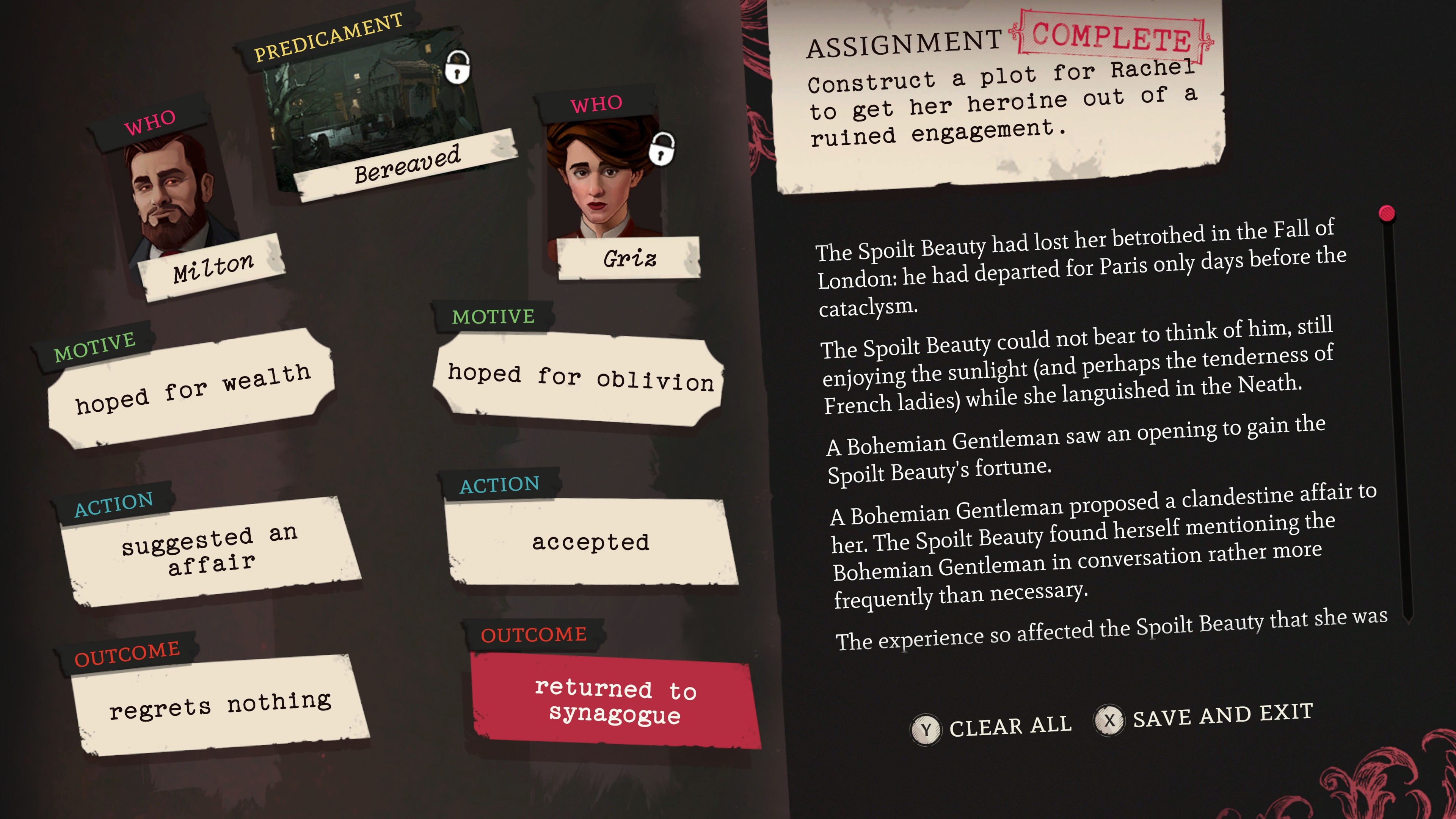
So, for instance, the storycrafting section for the murder case required me to pick a culprit, their motive, and how they did it, plus some other stuff, and if I picked ones that made sense I got a new theory in my arsenal that I could go and harangue people about to further my investigation.
In theory, it's great, and lord knows it fits impeccably well with the themes of Failbetter's London and its entire vibe as a studio, but more often than not I found myself thwarted trying to use it. Either I'd input a narrative that I thought made sense but that didn't give me a new story to go and talk to people about, or I wouldn't quite have the building blocks necessary to construct the theory I had in my actual, real-life head.
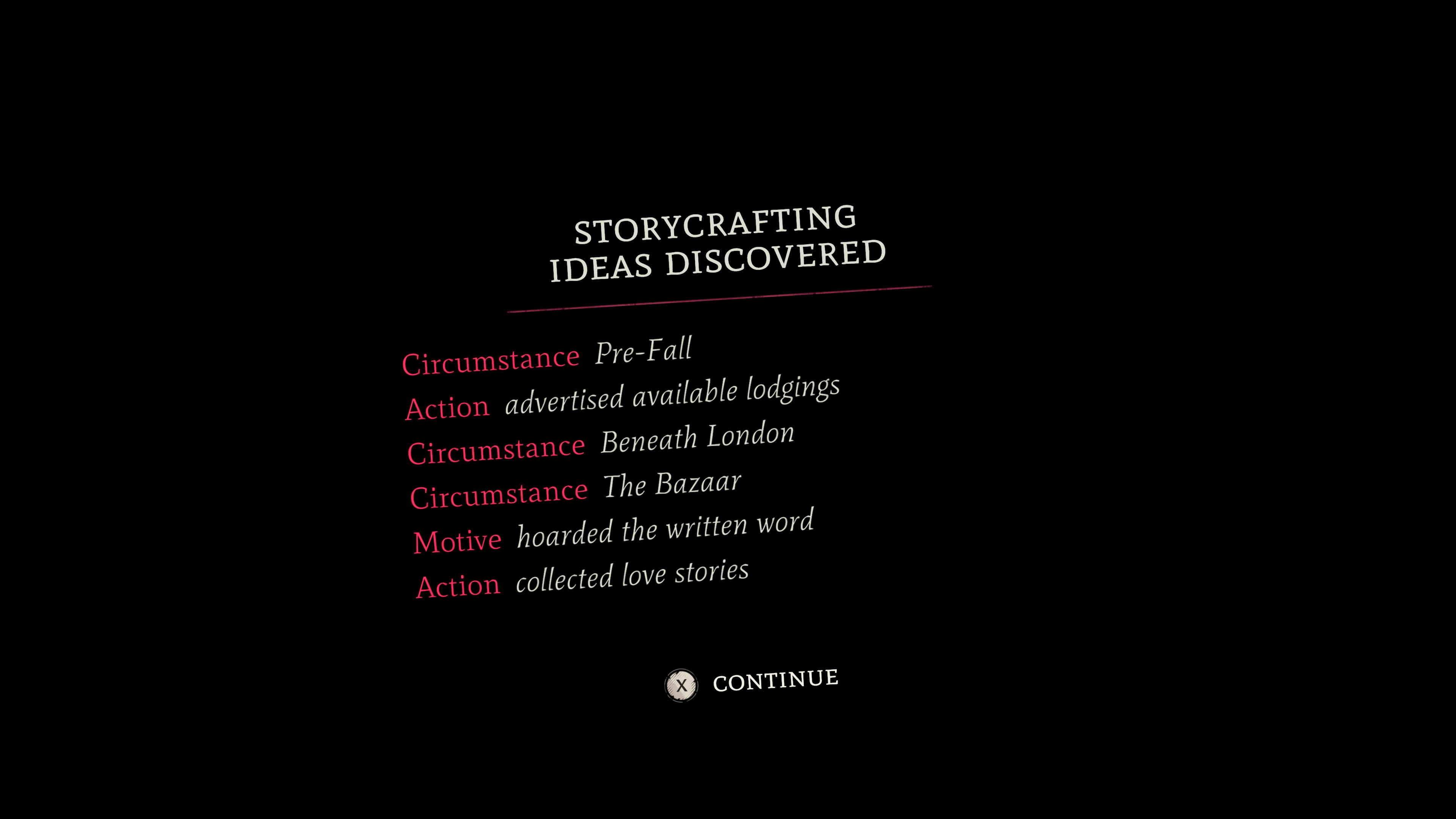
Certainly, I could go and chat to the relevant people, hoping the conversation gave me what I needed to construct my hypothesis, but sometimes a chat wouldn't yield any new storycrafting material at all, even when I felt like it should. Sometimes I would go to speak with someone only for the conversation to digress down some side-channel that meant I never got a chance to discuss what I wanted to talk about at all. With time so precious and the game constantly autosaving, I never wanted to waste time pursuing a lead unless I was almost certain it would give me something I could use.
Amusingly, this meant I ended up pursuing someone I was almost certain didn't do the crime, but who I nevertheless thought the jury would find guilty and would give me lots of storycrafting material to make a case with. Perhaps that's a wry commentary on something.
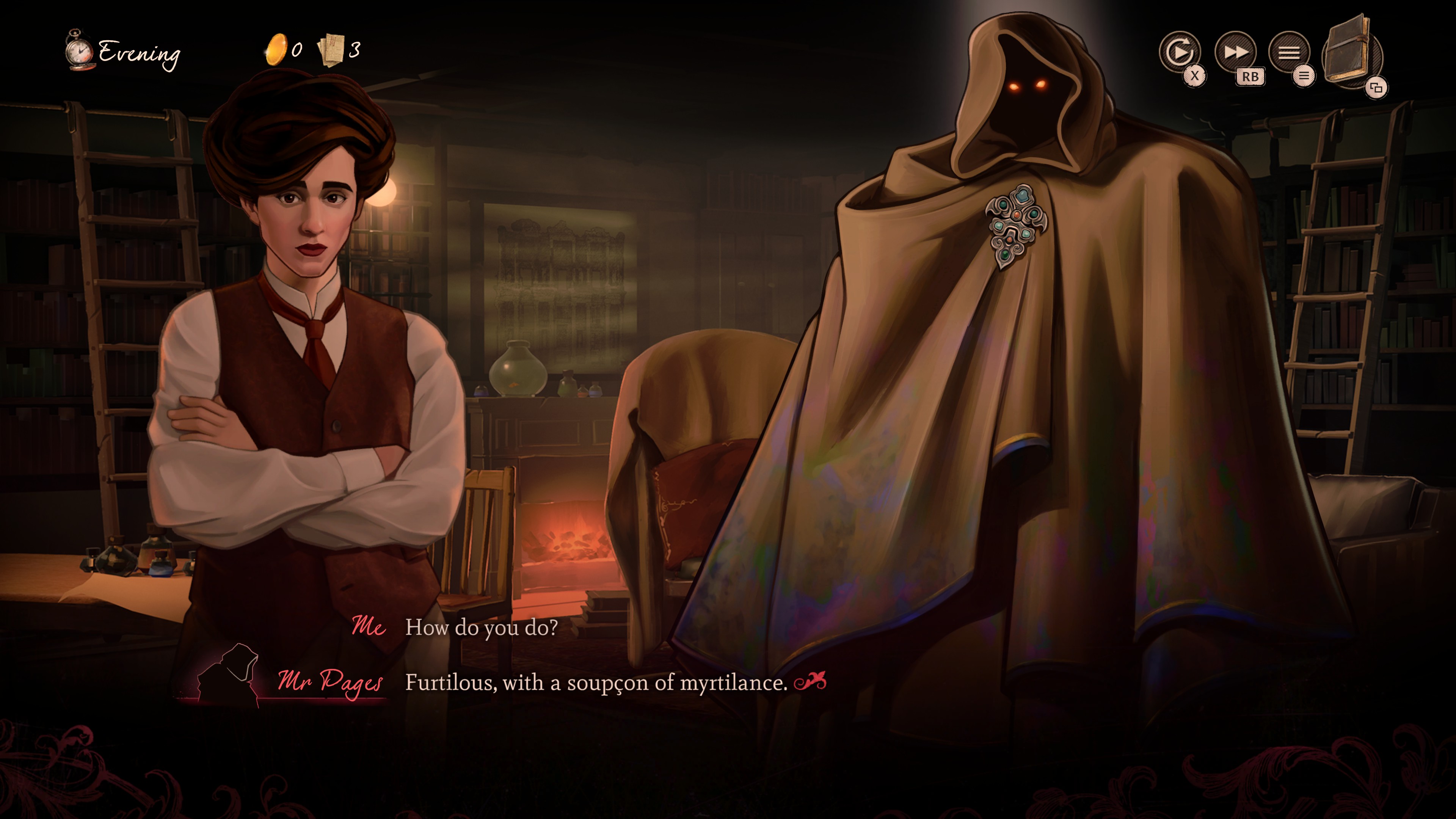
Watch, listen, repeat
Failbetter's London is a treat to engage with as ever, but between the time pressure, the repetition, and the foibles of its storycrafting system, the game holding it up in Mask of the Rose never really coheres properly. It feels a bit like a first draft, the prelude to an excellent sequel that will come out in a few years with the kinks ironed out and an easier-to-grasp set of mechanics. It feels like Sunless Sea, basically.
I still enjoyed my time with it, mind you, just like I did with Sunless Sea. For anyone who likes this world as much as I do, Mask of the Rose is an easy recommendation, while its brevity and placement so early in the series' timeline makes it a pretty good place for newcomers to dip their toes in, too. As it is, though, Mask of the Rose feels like a foundation for something great, but not quite great itself.
Mask of the Rose's writing and characters shine, but the game underneath them never fully gels together.

One of Josh's first memories is of playing Quake 2 on the family computer when he was much too young to be doing that, and he's been irreparably game-brained ever since. His writing has been featured in Vice, Fanbyte, and the Financial Times. He'll play pretty much anything, and has written far too much on everything from visual novels to Assassin's Creed. His most profound loves are for CRPGs, immersive sims, and any game whose ambition outstrips its budget. He thinks you're all far too mean about Deus Ex: Invisible War.
